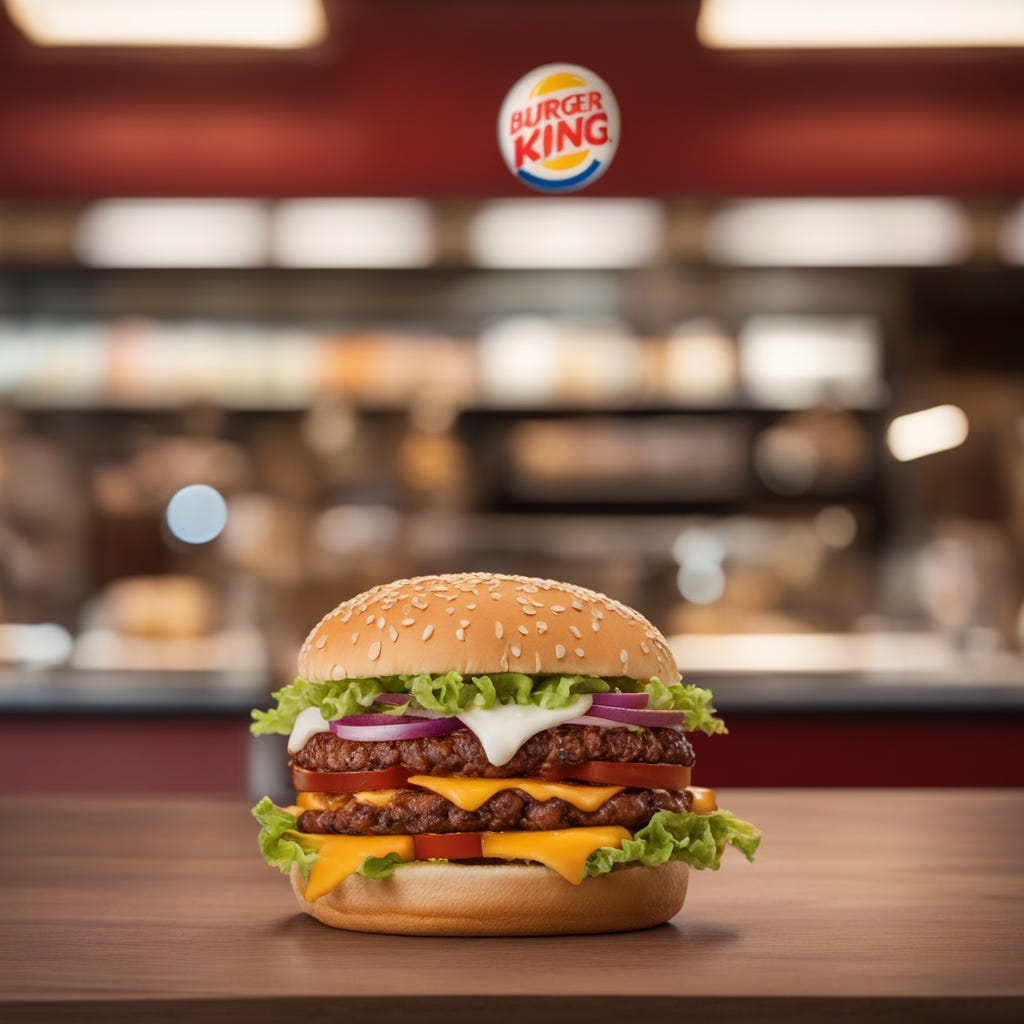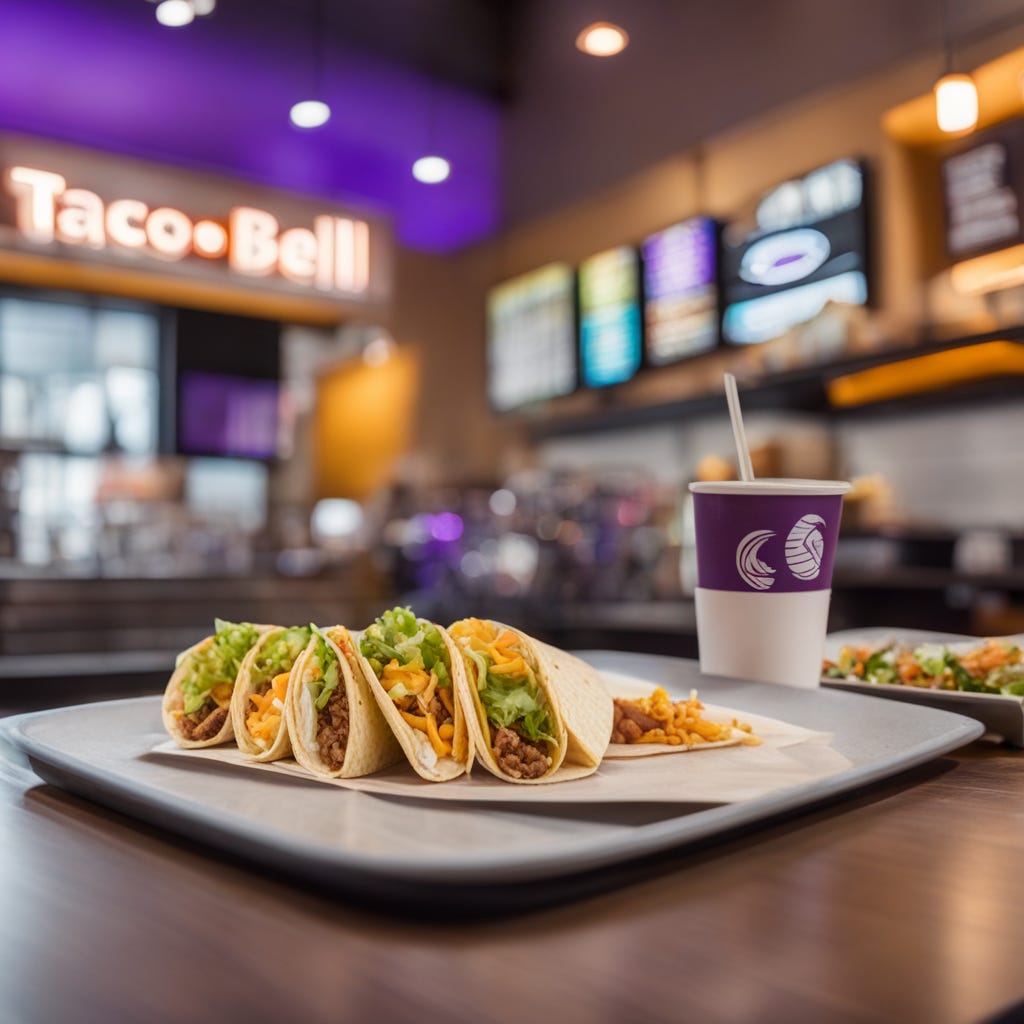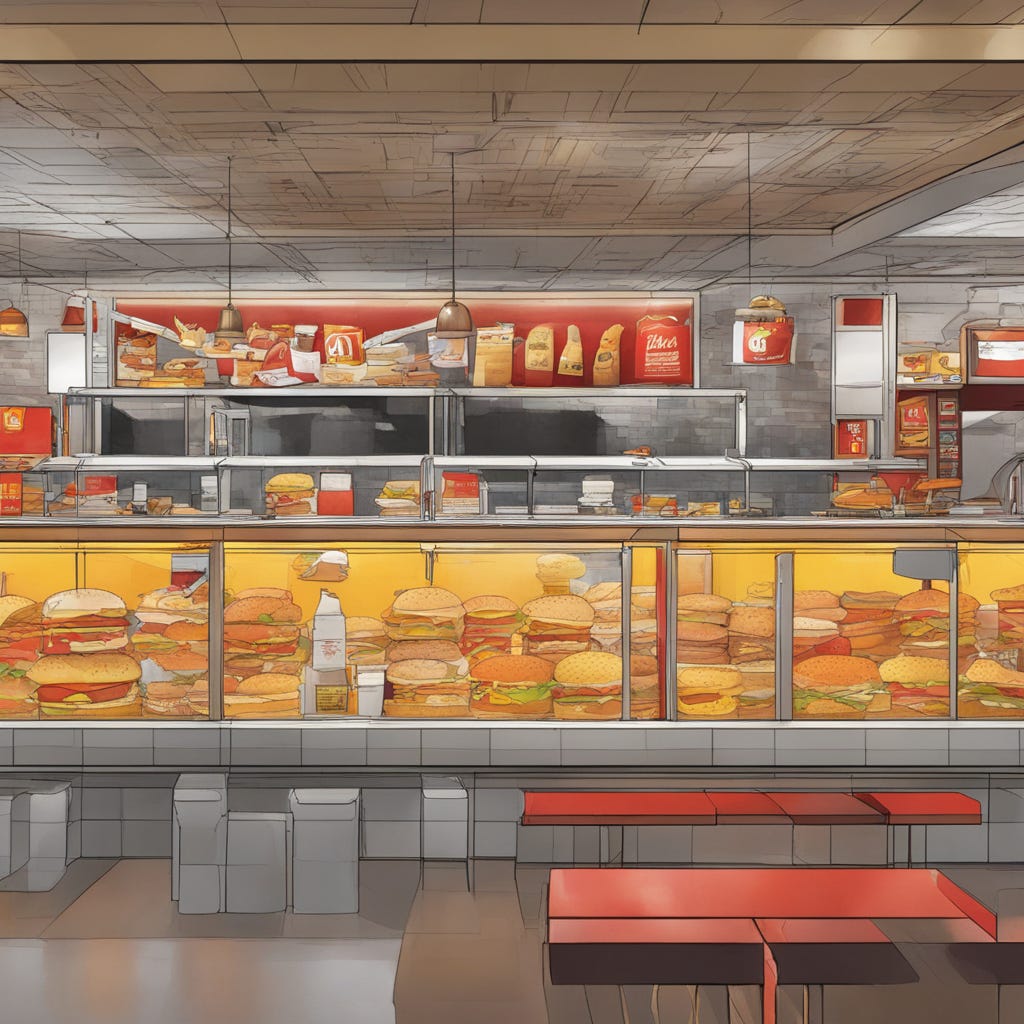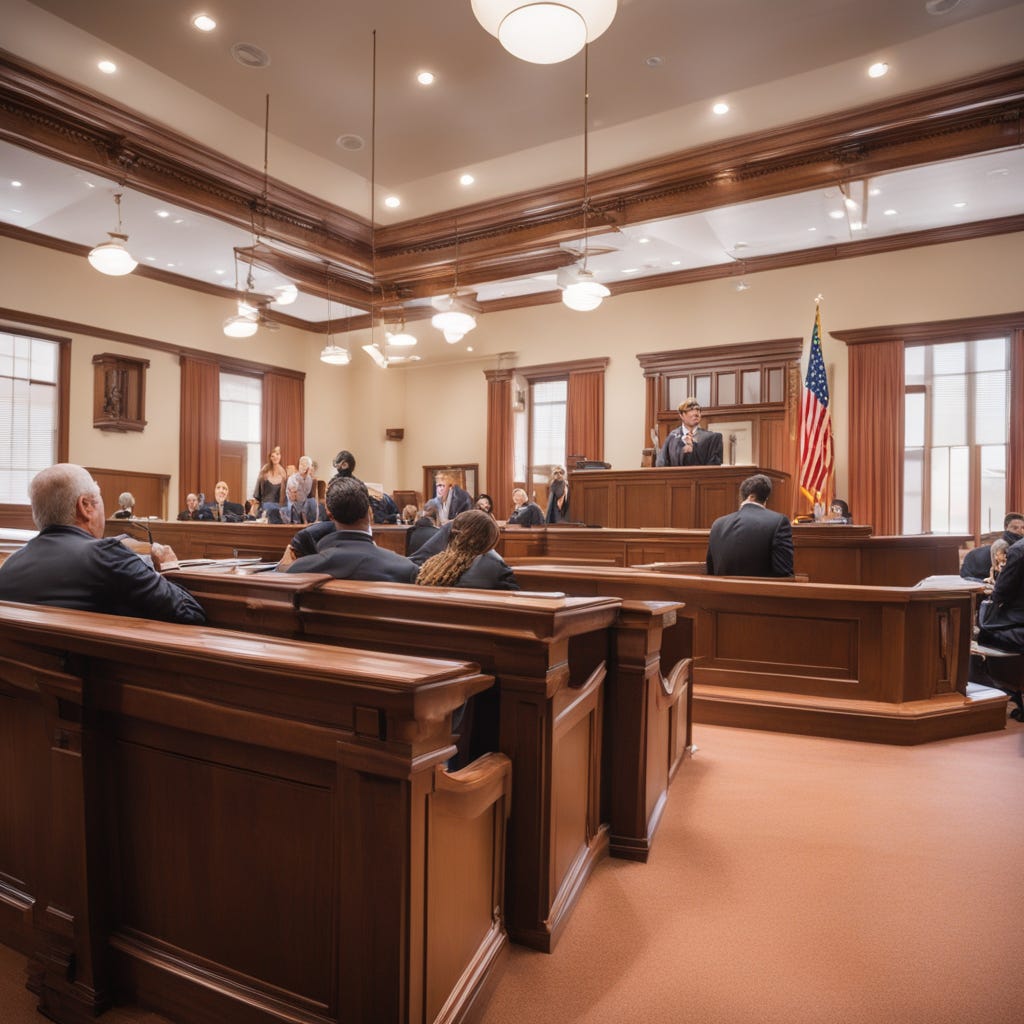🍔 Whopper of a Lie? Fast Food Giants on the Legal Grill Over 'Beefed-Up' Ads
From Juicy Ads to Judicial Jousts: The Rising Tide of Lawsuits Over ‘Beefed-Up’ Imagery
We're reader-supported and only partner with Attorneys and brands we trust. When you buy through links on our site we may receive a small commission at no extra cost to you.
You shall know the truth, and the truth shall make you mad.
It's a fast-food showdown in the legal arena as towering burgers and crispy fries from glossy ads face the hard, cold truth on the serving tray. When the juicy fantasy peddled by these eateries crumbles against reality, it leaves a host of disgruntled customers hungry for justice. And now, they're taking the fight from the counter to the courtroom.
Burger King, the home of the Whopper, is the latest to be thrown on the legal grill. A class action lawsuit accuses the fast-food giant of serving a whopper of a lie, alleging its ads exaggerate the meat quotient in its famed Whopper burgers and sandwiches. In August, a federal judge in Florida saw enough meat in these claims to let the case broil further in the judicial oven.
But the King isn't dining solo in this legal hotpot. Law firm Perkins Coie stirred the pot, revealing a growing appetite for such lawsuits. A whopping 214 suits were dished out against food and beverage companies in 2022, with another 101 served up in the first half of this year. To give you a taste of the trend, back in 2010, that number was a mere 45.
Pooja Nair, a legal maestro at Beverly Hills-based Ervin Cohen and Jessup, traces the origins of this legal feast to a few years back. Initially, snack chip makers were roasted for not filling their bags to the brim. Since 2019, the flavor of disputes switched to “vanilla-flavored” products that allegedly shortchanged vanilla aficionados.
The federal courts in New York, California, and Illinois seem to be the preferred kitchens where these legal recipes are cooked up. These courts, it appears, have a taste for letting such cases simmer rather than tossing them out.
And the heat is on across the fast-food realm. In Miami, legal eagles representing discontented diners have similar lawsuits simmering against the likes of Wendy’s, McDonald’s, and Taco Bell.
Before these beefs even hit the courtroom grill, many companies choose to settle. For instance, A&W and Keurig Dr Pepper popped open a cool $15 million to settle claims over misleading “Made with aged vanilla” labels on soda cans.
In this digital era, a snap of a soggy sandwich can ignite a social media firestorm, fanning the flames of legal action. Jordan Hudgens, the tech whiz at Dashtrack, notes the rising tide of consumer awareness is adding a spicy kick to the skepticism towards product claims.
The economic crunch isn’t helping the eateries either. Ben Michael, an attorney from Austin, Texas, sees inflation as a silent ingredient, pressuring restaurants to trim down portion sizes to cut costs, often without revising their menus or notifying their marketing teams.
In the Burger King saga, the legal beef centers on ads allegedly showcasing burgers about 35% larger with double the meat, leaving a sour taste in the plaintiffs' mouths.
As the legal pots and pans clang in this fast-food drama, a simmering question rises to the top: will these lawsuits prompt a shift towards more honest food advertising? Jeff Galak, a marketing maven at Carnegie Mellon University, foresees a potential shift, albeit with a side of challenges. Realistic portrayals could cool down sales, as the fine line between tempting imagery and deceit continues to be finely sliced and diced in the courtroom.
In this sizzling saga of courtroom culinary confrontations, the stakes are piping hot, not just for the embroiled companies, but for every consumer with a soft spot for fast food. As the allure of glossy ads beckons, it’s time to chew on the reality that might await us at the counter. Amidst the aroma of litigation, one thing is clear: the fast-food industry is in for a legal roasting, and this is one grill that's not cooling down anytime soon.
Based on Reporting by AP News.
Related Stories.
The Whopper of Lies: Burger King's "Beefed-Up" Ads Face Legal Grilling
Disclaimer: This article is as informational as it is snarky. For actual legal advice, consult someone who passed the bar exam, not the in-flight snack bar. Unless someone like you cares a whole awful lot, nothing is going to get better. It's not. Dr. Seuss
Justice Served Cold: A&W's Vanilla Claim Leaves a Bitter Taste
My two great treats in life are baked beans and vanilla ice-cream. Jonathan Dimbleby A recent class-action lawsuit against A&W has revealed that the beverage company was selling root beer and cream soda labeled as “Made With Aged Vanilla,” even though the beverages weren’t really made with aged vanilla. Here's what you need to know and how you can claim y…








